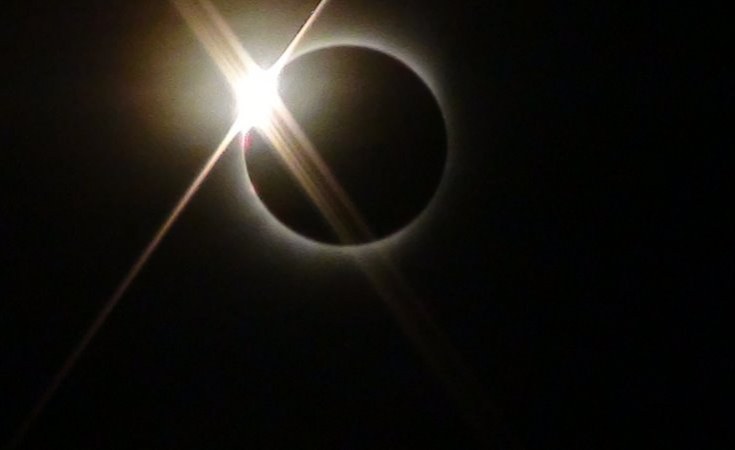Some parts of the world will witness a total solar eclipse on April 8, 2024, which has also been referred to as the Great American Eclipse.
The rare astronomical wonder will be visible in April in parts of Mexico, Canada, and the United States, according to the National Aeronautics and Space Administration (NASA).
What is the total solar eclipse?
A total solar eclipse happens when the Moon completely covers the face of the Sun. Every 18 months or so--somewhere in the world--a total solar eclipse takes place.
The total phase of the eclipse, where the Moon completely covers the Sun, is visible from along a narrow path of totality. Typically, this path across the globe is around 15,000 km (9000 miles) long, but only about 150 km (90 miles) wide.
Places to experience it
The report revealed that 14 states in the US are along the path of totality including Texas, Oklahoma, Arkansas, Tennessee, Illinois, Kentucky, Indiana, Missouri, Ohio, Pennsylvania, New York, Vermont, New Hampshire and Maine.
For some in southeastern Missouri, western Kentucky and southern Illinois, this will be their second total solar eclipse in seven years since they were also along the path of totality in 2017.
Time to witness total solar eclipse
According to NASA, the total solar eclipse on April 8 will start over the South Pacific Ocean. The first spot in North America to experience totality will be Mexico's Pacific Coast around 11:07 a.m. PDT.
The time that the event happens for you depends on where you are along the path of totality.
For example, the following cities will experience the beginning of totality at the listed times:
Dallas at 1:40 p.m. CDT.
Little Rock at 1:51 p.m. CDT.
Carbondale, Kentucky, at 1:59 p.m. CDT.
Cleveland at 3:13 p.m. EDT.
Buffalo, New York, at 3:18 p.m. EDT.
Caribou, Maine, at 3:32 p.m. EDT.
How to safely watch the eclipse
To safely view the 2024 April 8, total solar eclipse, you will need glasses with solar filters, sometimes known as eclipse glasses or solar glasses.
How to view the eclipse
When the Sun is covered completely, known as totality, it is safe to remove your eclipse glasses. This is when the Sun is covered by the Moon. The glasses must go back on before the partial eclipse resumes and part of the Sun is visible again.
Removing your glasses only applies if you are located along the path of totality in 2024. Most of the US will see a partial solar eclipse, but only a 115-mile-wide path will see a total eclipse.
Not total everywhere
Observers outside the path of totality may see a partial eclipse. By convention, eclipses are named after their darkest phase--if a solar eclipse is total at any point on Earth, it is called a total solar eclipse.
Hybrid solar eclipses or annular-total eclipses are an exception to this rule. This is because they change from an annular to a total eclipse or from a total to an annular eclipse along their path.
Expected ecological reactions
Wildlife and insects also experience the changes and can react as though the sun has just set. Birds might become silent, and crickets can begin chirping. A NASA citizen science experiment is studying some of these wildlife reactions during this year's eclipse.
NASA said no matter where you see it, you will not want to miss the 2024 North American eclipse, as the next one in the US does not happen until August 2044.
NOTE:
PDT - Pacific Daylight Time
CDT - Central Daylight Time
EDT - Eastern Daylight Time


